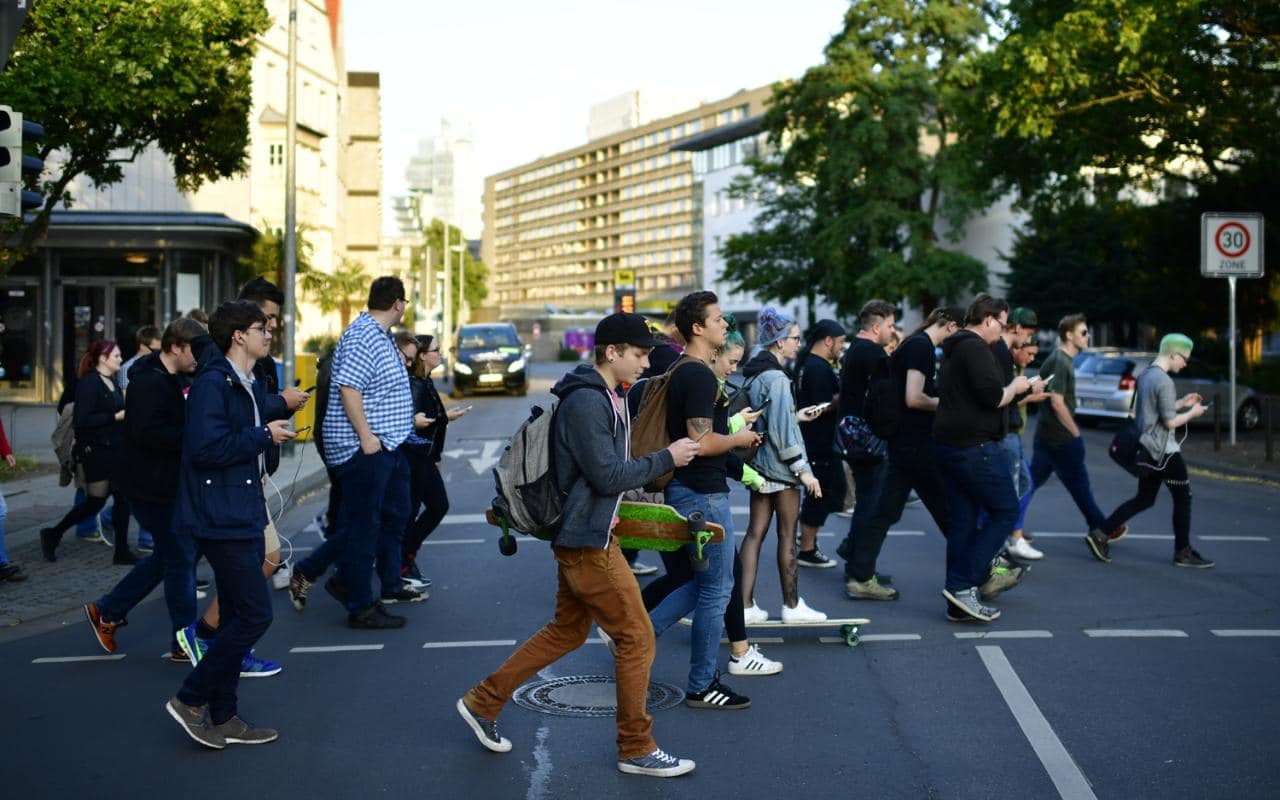Whether you walk, bike or drive, take the time to follow crosswalk safety guidelines.
Pedestrians:
•Always cross at marked crosswalks. You forfeit your rights as a pedestrian if you cross elsewhere
•Obey any pedestrian signals and look left-right-left to make sure the road is clear in both directions before crossing
•If a vehicle approaches, make eye contact with the driver to be sure s/he sees you before you cross
•Look before walking past stopped vehicles. Do not cross just because a driver waves you on. Be sure all lanes are clear first
•Wear bright and/or reflective clothing
•Never use a cell phone or other electronic device while walking. Distracted walking can make someone lose focus of their surroundings, putting our safety and the safety of others at risk
Bicyclists:
•Yield to pedestrians
•Remember that bicyclists are not considered pedestrians unless they are walking their bikes. Otherwise, they are considered vehicles and forfeit their rights as pedestrians in the case of an accident or citation
•Use marked bike paths or multi-use paths when available
•Obey vehicular traffic signals and laws on the roadways
•Use extra caution as you transition between bike paths, roads and sidewalks. Be aware that your actions are unpredictable to drivers and pedestrians
•Wear bright and/or reflective clothing
Drivers:
•Yield to pedestrians in crosswalks and at intersections
•Be prepared to stop at all marked crosswalks. Stay alert and reduce speed in areas with crosswalks
•Be alert for bicyclists and skateboarders whose approaches to the crosswalk may be much swifter than those of pedestrians
•Come to a complete stop if pedestrians are crossing or preparing to cross
•Wait until pedestrians have crossed at least one lane past the lane you are in before resuming travel
•Never pass another vehicle that has stopped or is slowing down at a crosswalk
•Never use a cell phone or other electronic device while driving. Distracted driving can make someone lose focus of their surroundings, putting our safety and the safety of others at risk



